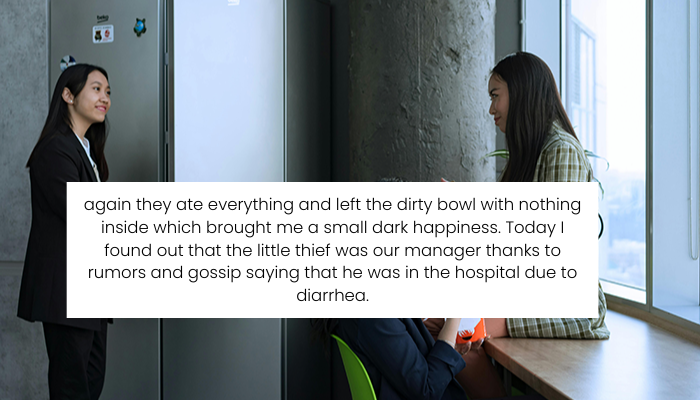Employee Sets a Trap for Office Food Thief—And Catches Her Boss Red-Handed
In this twist-laden office drama, a 20-year-old employee finds herself pushed to the edge after repeatedly discovering that someone is stealing her carefully prepared meals at work. What started as routine workplace annoyance quickly escalated into a calculated plan of “culinary justice.” After weeks of dealing with her food being stolen and her health-focused meal plans disrupted, OP devises a way to identify and punish the lunch thief—by lacing her own food with a safe dose of laxatives and setting the trap. When it turns out that the mystery thief is her manager, and he potentially ends up hospitalized from the effects, her initial satisfaction is replaced by anxiety and guilt.
This story thrives on emotional contrasts—righteous indignation clashing with remorse—and the deeper theme of power imbalance. OP’s decision, though driven by a desire for self-protection, now seems precarious because of the identity of the culprit. It’s a relatable moment of vulnerability masked in righteous vengeance, made all the more complicated by workplace dynamics and the looming threat of professional consequences.
The author of the post is an office worker and recently faced a very unpleasant situation – one of her colleagues regularly stole her food from the fridge

The woman first wanted to complain to HR and check the security camera data, but then decided to punish the thief herself
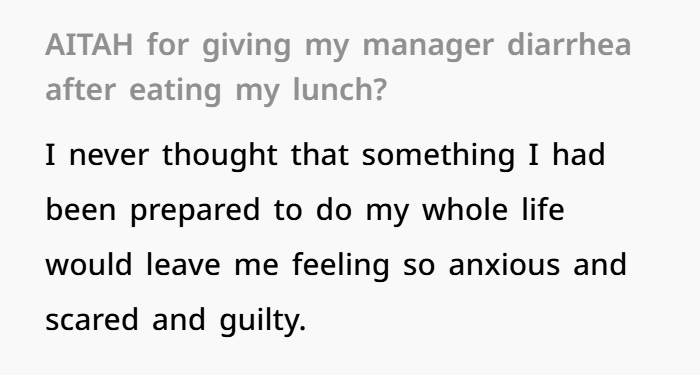
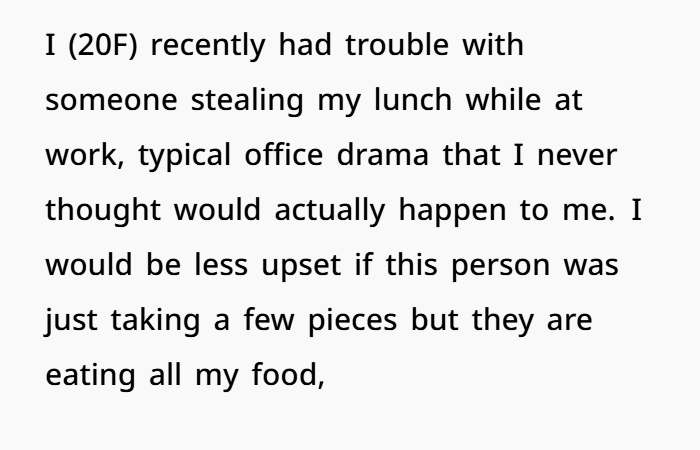
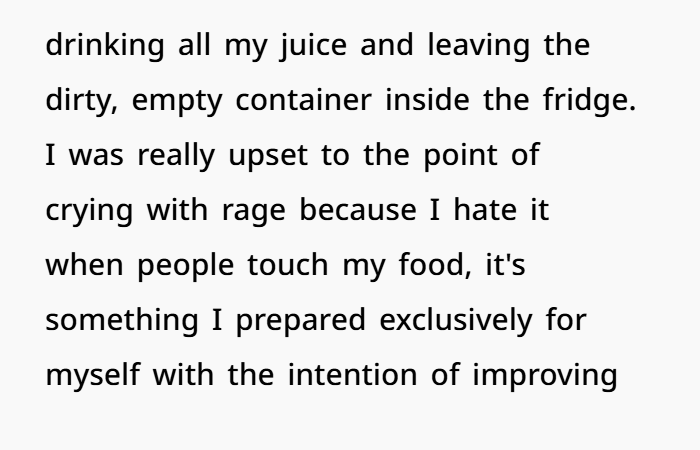

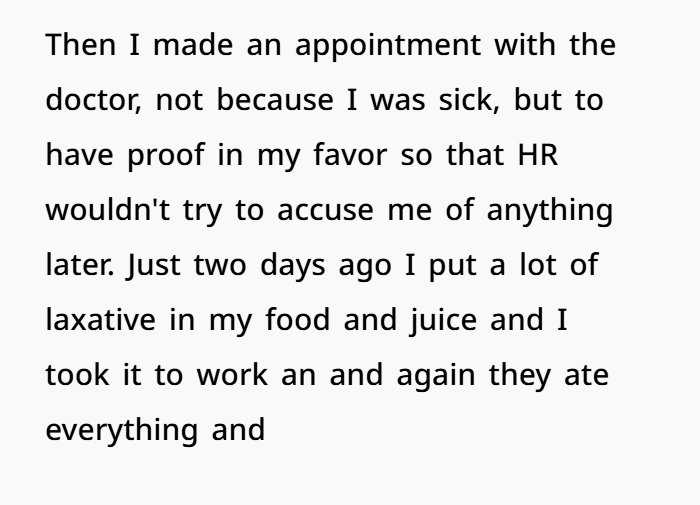
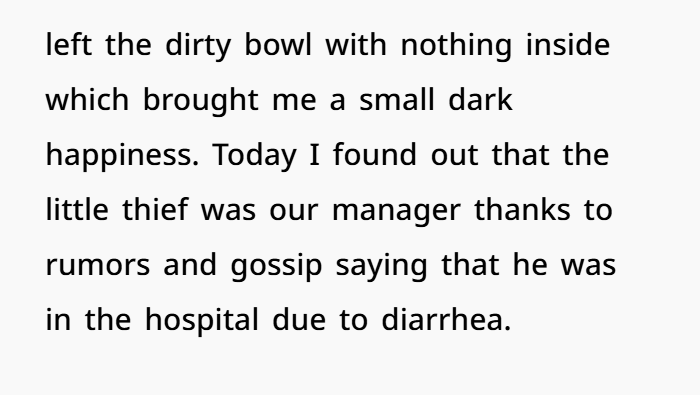


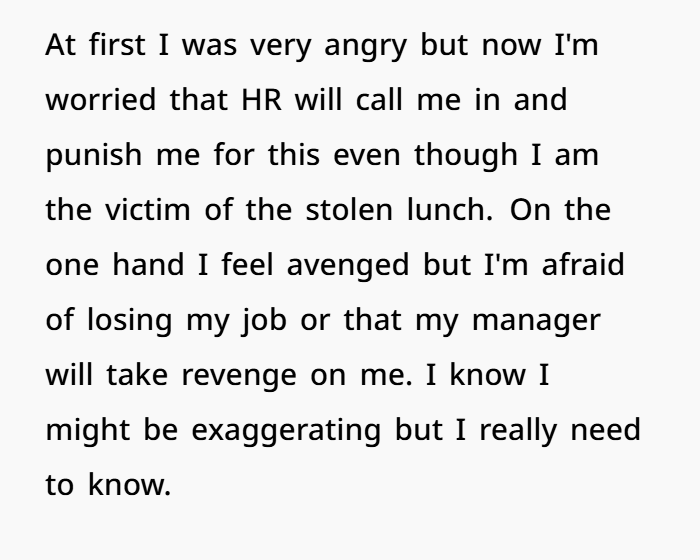
Navigating the Legal and Ethical Landscape of Workplace Food Tampering
Understanding the Legal Implications
At first glance, it might seem justifiable to take measures to deter someone from repeatedly stealing your lunch. However, introducing a substance like a laxative into food, even if it’s your own, with the intent that someone else consumes it, can have serious legal ramifications.

In many jurisdictions, this act can be classified as food tampering, which is often considered a criminal offense. For instance, in the United States, intentionally contaminating food can lead to charges ranging from misdemeanors to felonies, depending on the severity and outcome of the act. If the individual who consumed the tainted food suffered harm, such as hospitalization, the charges could escalate to assault or even more severe offenses.
Moreover, the intent behind the act plays a crucial role. If it’s evident that the food was deliberately altered to cause discomfort or harm to the person consuming it, the legal system is likely to view it unfavorably. Even if the initial motive was to deter theft, the method employed can overshadow the intent, leading to potential legal consequences.
Workplace Policies and Ethical Considerations
Beyond the legal aspects, workplace policies often have strict guidelines regarding employee conduct. Introducing substances into communal areas or food, regardless of the reason, can violate company policies and lead to disciplinary actions, including termination.

From an ethical standpoint, while it’s understandable to feel violated when personal belongings, such as lunch, are taken without permission, retaliating in a manner that can harm another individual raises moral concerns. It’s essential to address grievances through appropriate channels, such as reporting the issue to Human Resources or management, rather than taking matters into one’s own hands.
Alternative Approaches to Addressing Workplace Theft
If you’re facing repeated instances of lunch theft, consider the following steps:
- Document the Incidents: Keep a record of each occurrence, noting dates, times, and any other relevant details.
- Communicate with Management or HR: Present your documentation to the appropriate department, expressing your concerns and seeking a resolution.
- Secure Your Food: Use personal coolers or lunch bags that can be kept at your desk or in a secure location, minimizing the risk of theft.
- Label Your Food Clearly: Sometimes, clear labeling can deter potential thieves.
- Consider Surveillance: If the problem persists, and with the approval of management, setting up a discreet camera might help identify the culprit.
People in the comments gave the woman a huge shoutout for being witty and inventive and tried to reassure her about the possible consequences
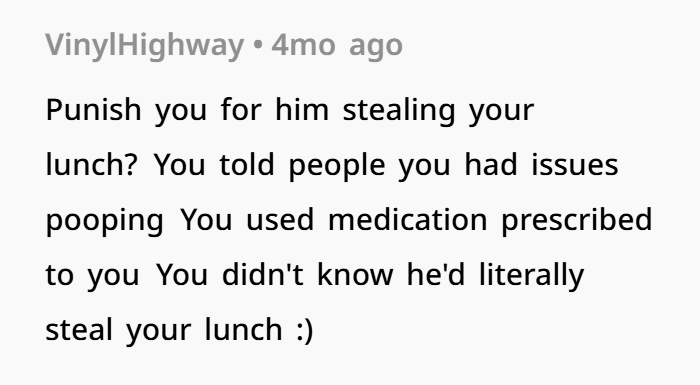
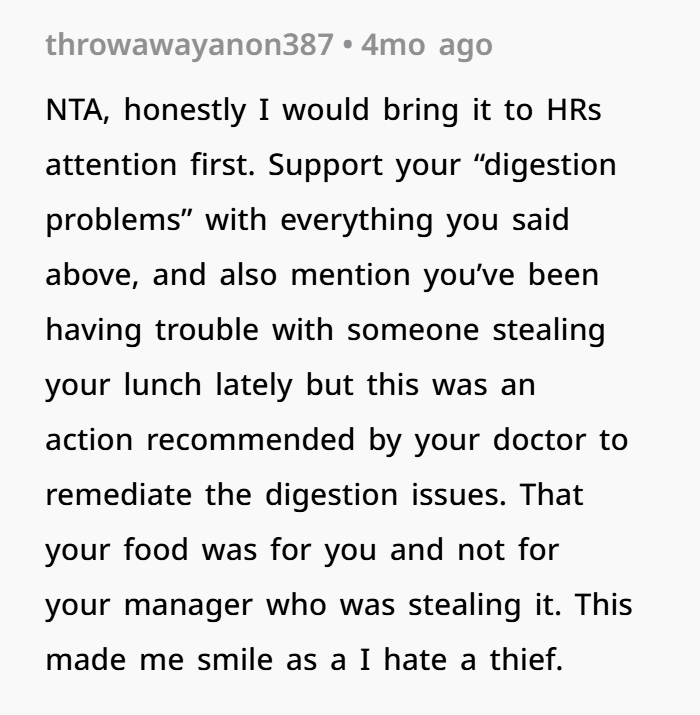
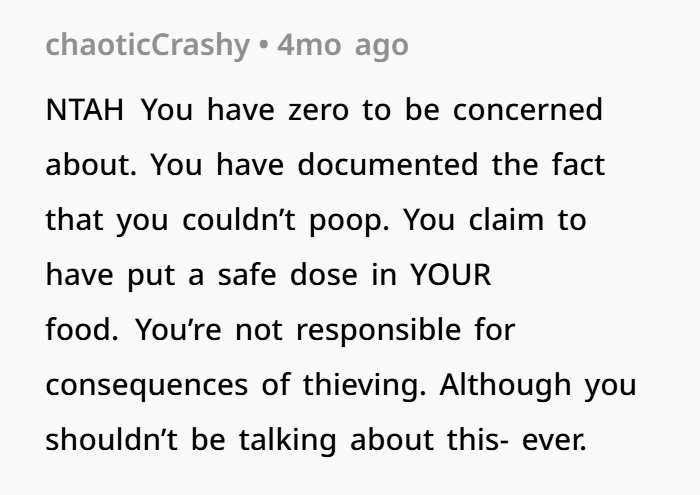
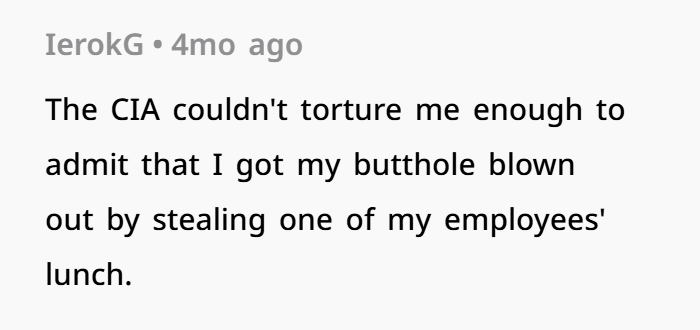
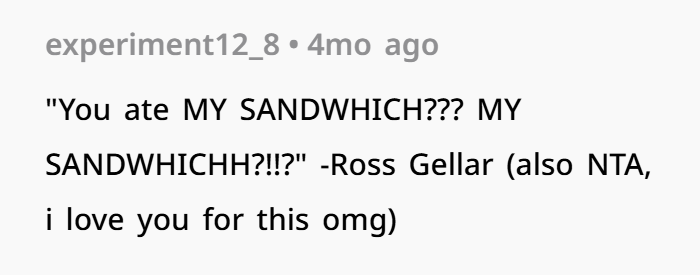
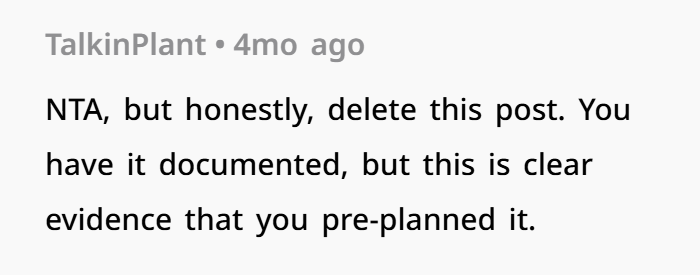
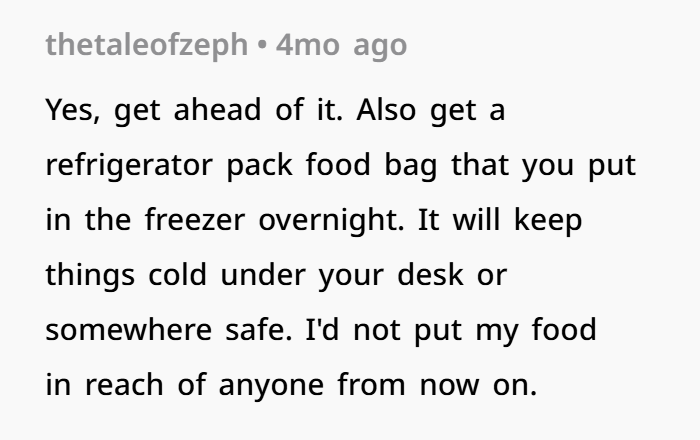
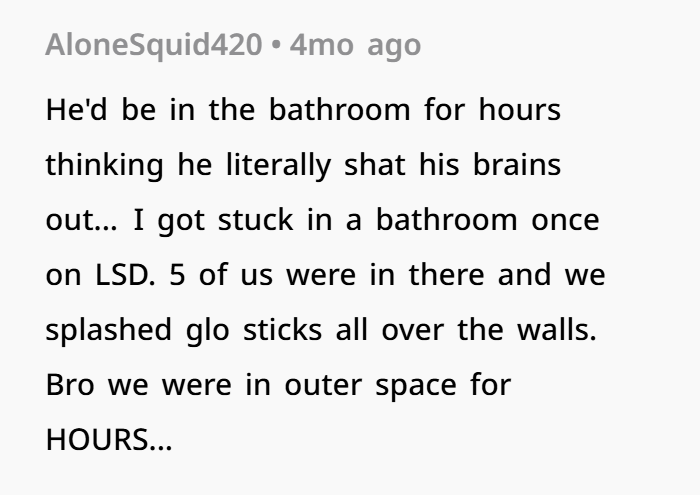
While the frustration stemming from repeated lunch theft is valid, it’s crucial to approach the situation through proper channels and methods. Taking actions that can harm others, even if they seem justified in the moment, can lead to unintended consequences, both legally and ethically. Always prioritize open communication and seek assistance from workplace authorities to address such issues effectively.

